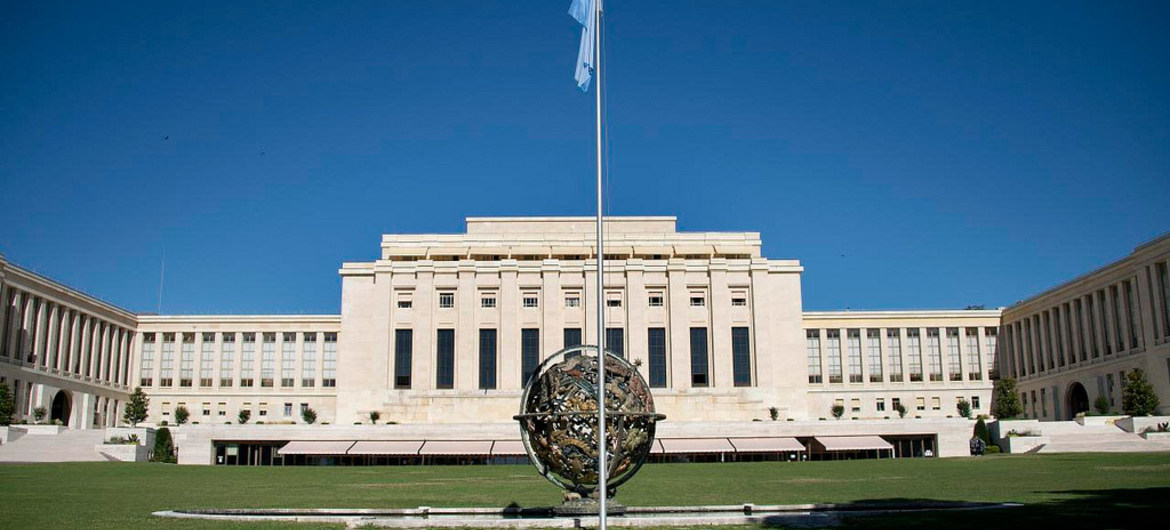In the session's work were participated experts of the UNECE Sustainable Transport Division, the United Nations Conference on Trade and Development (UNCTAD), the Convention on International Trade in Endangered Species of Wild Fauna and Flora (CITES), the International Container Bureau (IBC) and the International Group for the development of global standards (GS1).
The session was opened by Ms Elisabeth Türk, Director of the UNECE Economic Cooperation and Trade Division, who highlighted the many achievements and thanked the experts, the Bureau and the Secretariat for their contributions to UN / CEFACT activities. The Director highlighted the relevance of such documents as the Disaster Management Recommendation, Electronic Outcomes contributing to the dematerialization of trade (contributing to the broader UN response to COVID-19), and a Call to Action for Digital Transformation. She also highlighted UN / CEFACT's contribution to the circular economy, which is the theme of the 69th session of the UNECE Commission, with particular emphasis on ensuring traceability and transparency in the clothing and footwear sector.
She highlighted the importance of the capacity building work done for the beneficiary countries from Central Asia and drew attention to the need to address the three-pronged challenge of prioritizing work, securing an adequate resource base and strengthening communications.
Ms Sue Probert from the UK has been elected Chairperson of UN / CEFACT for the period 2021-2024.
Ms Sue Probert emphasized that UN / CEFACT's work both directly and indirectly contributes to sustainable development, in particular the dematerialization of documents, and also aims to eliminate human contact and ensure the reusability of data through semantic data models, which is extremely important in the context of a pandemic. She stressed that the approach to work on new topics such as sustainable development should build on the work already done on trade facilitation and e-business standards.
The session addressed the issues that have arisen since the 26th session of UN / CEFACT and five key themes that support activities aimed at sustainable, inclusive and resilient economic recovery after the COVID-19 pandemic. These are:
- Digital transformation and dematerialization;
- Sustainable value added networks;
- Sustainable value added networks in the clothing and footwear sector;
- Hi-tech;
- Capacity building.
A short report on activities supporting the implementation of trade facilitation activities and the use of UN / CEFACT standards was presented by the UN Regional Adviser.
In particular, he noted that experts from Ukraine and other countries working in the framework of the UNDA COVID-19 project developed a package of standards for electronic equivalents of documents, such as a multimodal waybill, packing list, sea waybill, documents on inland water transport, railway waybills. , invoice for customs, certificate of origin, which accompany goods in multimodal transport. (More details can be found here and here).
Work has begun on the implementation of the existing UN / CEFACT standards for electronic equivalents of transport documents - in particular, the electronic CMR consignment note (eCMR). Work is underway using the eCERT standard to enable the introduction of electronic phytosanitary certificates in Ukraine and neighboring countries.
The Delegation of Ukraine expressed its gratitude to Ms Elisabeth Türk, Director of the UNECE Economic Cooperation and Trade Division, the secretariat and the Regional Adviser for their work, as well as for launching a pilot project on sub-dematerialization along the Baltic Sea-Dnieper-Black Sea-Danube transport corridor. This example demonstrates the effectiveness of the application of UN / CEFACT standards in multimodal transport.
The session reviewed and approved a number of new Recommendations and standards in the field of TFT, in particular, Recommendation 38: Information Portals on Trade Issues; Recommendation 44: Measures to facilitate cross-border procedures for disaster relief; Recommendation 45: Minimum standards for shipping agents and ship brokers; Recommendation 46: Improving the transparency and traceability of sustainable supply chains for the clothing and footwear industry;
Recommendation 47: Trade-related activities in response to the pandemic crisis;
The session featured updated versions of UN / EDIFACT handbooks, the United Nations Trade and Transport Points Directory (UN / LOCODE), Libraries and Core Components, XML Schema Libraries, etc.
Also, new international standards for electronic business transactions in the field of international forwarding and transport services, cross-industry export packing list, the "Traceability and transparency in the textile and leather industry" standard, a standard for electronic business transactions for specific modes of transport and logistics (rail, sea and Inland waterways) and the Annex to UNECE Recommendation No. 23 “Freight cost code - KFR: harmonization of the description of freight costs and other charges”.
In the area of capacity building support and technical cooperation, training materials were presented on the implementation of a Single Window, on the use of international standards, on national trade facilitation authorities;
The work program of the United Nations Center for Trade Facilitation and Electronic Business (UN / CEFACT) for 2021-2022 was presented for consideration and approval by the Plenary.
Once again, the session noted the importance of the work of the UN / LOCODE national coordinators and the need for their appointment in the countries.


